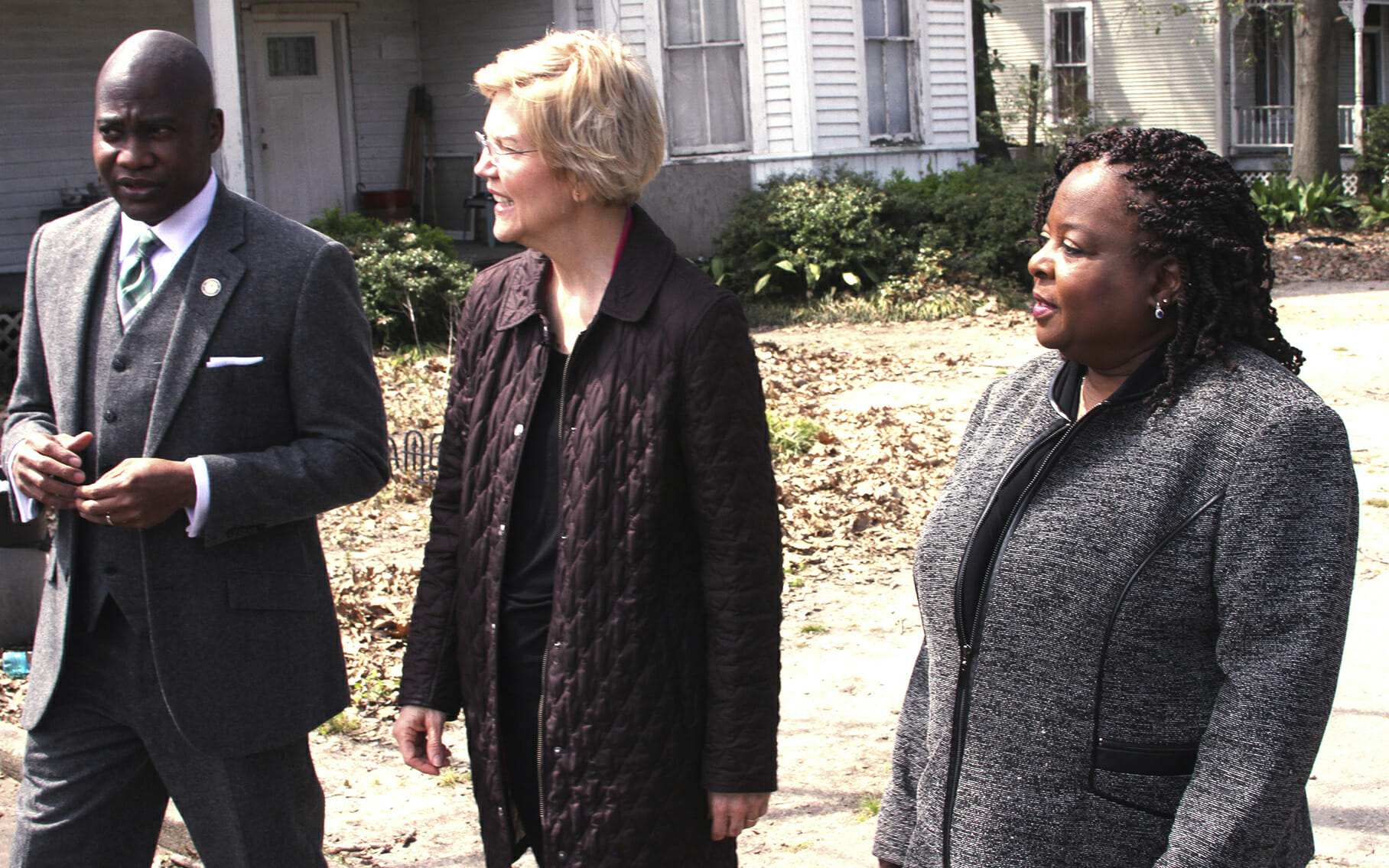
Warren backs congressional plan for reparations study
JACKSON, Miss. (AP) — Democratic presidential candidate Elizabeth Warren on Monday embraced a congressional proposal to study a framework for reparations to African-Americans hurt by the legacy of slavery as the best way to begin a “national, full-blown conversation” on the issue.
Warren first voiced support for reparations last month, becoming one of three 2020 Democratic candidates to do so. But her comments about a study on reparations, made during a CNN town hall broadcast from Mississippi, mark a keener focus from the Massachusetts senator on her preferred route to tackle the thorny question of how best to deal with systemic racial inequality.
The Democratic field’s ongoing debate over reparations comes as African-American voters are poised to exert significant influence over the selection of the party’s nominee to take on President Donald Trump.
Warren offered in-depth answers to several other questions that touched on issues important to African-American communities, winning cheers for a call for Mississippi to replace its state flag — the only one in the nation that depicts a Confederate image. Warren, 69, has made racial justice a centerpiece of her case for the Democratic nomination, even as she doubles down on her long-running emphasis on economic inequity.
Warren also came out in favor of eliminating of the electoral college, the most pointed instance of her opposition to the polarizing mechanism the nation uses to elect its presidents.
She has been critical of the electoral college in the past, saying last year that Trump’s 2016 victory — despite Democrat Hillary Clinton’s winning 3 million more total votes — is “not exactly the sign of a healthy democracy.” But Warren’s comments on Monday were her most straightforward endorsement of an end to the electoral college system.
“I think everybody ought to have to come and ask for your vote,” Warren said.
She also faced a tough question about her past claims to Native American identity, a political liability for her presidential run as she attempts to move past a DNA analysis she released last year that showed “significant evidence” of a distant tribal ancestor.
Warren told the audience that, growing up in Oklahoma, “I learned about my family from my family,” adding, “That’s just kind of who I am, and I do the best I can with it.” She added that, based on her experiences traveling to nearly a dozen states so far in her campaign, Americans are more inclined to ask her about issues that affect their everyday lives.
The Western Journal has not reviewed this Associated Press story prior to publication. Therefore, it may contain editorial bias or may in some other way not meet our normal editorial standards. It is provided to our readers as a service from The Western Journal.
Truth and Accuracy
We are committed to truth and accuracy in all of our journalism. Read our editorial standards.
Advertise with The Western Journal and reach millions of highly engaged readers, while supporting our work. Advertise Today.












